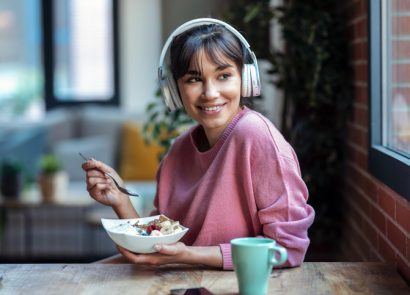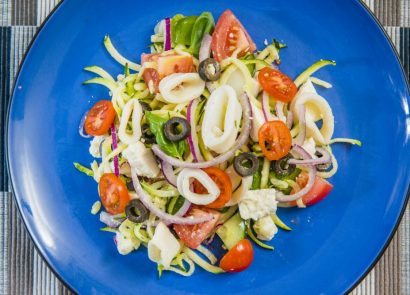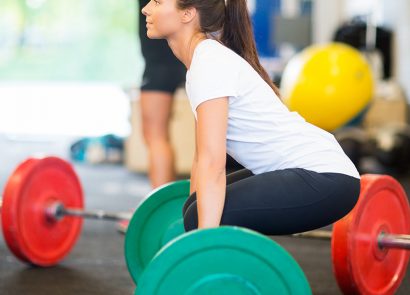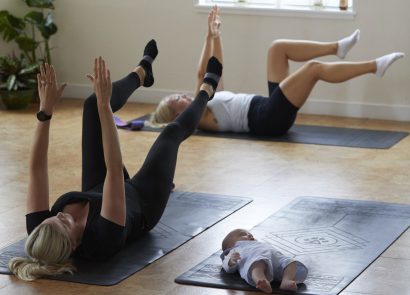Sunshine holidays are a time to relax and unwind from the stresses of day-to-day life – somewhere to enjoy a slower pace, indulge in food and drink, and spend time enjoying warm weather, beach walks and blue seas. However, when our defences are down, it’s easy to get sick and waste those precious days off work feeling ill. We called in the professionals to find out how to avoid the most common complaints, allowing you to make the most of your time in the sun.
Travel sickness
On a lovely day you decide to take an excursion to an attraction further afield. Be it by taxi, boat or bus, getting travel sick is the last thing you need when on the move.
The prevention…
“If you’re prone to travel sickness, look to take some precautions before your journey,” says Dr Paul Stillman, GP and adviser to Schwabe Pharma UK (schwabepharma.co.uk). “You can buy travel sickness remedies over the counter at a pharmacy and take them 30 minutes before your journey to ease your symptoms. Taking antihistamines one or two hours before you travel can help, too.”
The cure…
“If you start to feel unwell, sit where you’re least likely to experience any movement – in the front seat of a car or bus – and choose to travel by train, if possible, instead of by car. Try to keep your head as still as you can, and open a window to let in some fresh air. Focus on your breath, breathing in and out slowly and regularly. Wearing travel wristbands or taking ginger can also help as natural remedies.”
Migraine
After enjoying your holiday for a couple of days, a headache that you just can’t shift descends. Instead of a day sightseeing and exploring, you’re hiding out in a darkened bedroom.
The prevention…
“If you get migraines, you may already be aware of the things that will trigger an attack,” says Dr Paul Stillman. “For some people, holidays can present more headache triggers than time at home – bright lights at an airport, flight delays, rushed transfers, or even relaxing after a stressful period, can start an attack. When we’re on holiday, we often change our body clocks – too much or too little rest, changes in sleeping patterns, jet lag from long-distance travel, altered mealtimes or missed meals, can all cause head pain that sends you straight to bed. If you see an obvious link between a behaviour and an episode, you can try to avoid it or minimise it – for example, certain food and drinks are a trigger for migraines in around one in five people.”
The cure…
“If an attack occurs while you are away, you may need an anti-sickness medicine, especially if nausea or vomiting are among your main symptoms. Avoid painkillers containing codeine, which can make the nausea worse. Soluble painkillers or fast-acting tablets will help control the attack quicker. There are effective herbal remedies for migraines that are also great for headaches, such as Migraherb Feverfew Migraine Relief Capsules (£8.16, schwaberpharma.co.uk), and some people find that the vitamin riboflavin can reduce severity and frequency.”
Flu
You’ve been working hard for weeks, looking forward to your dream break. You’ve turned on your out of office, double checked you’ve switched off the iron and arrived at your sunny destination – then a nasty cold strikes.
The prevention…
“Try and keep your immunity levels high before you go away to have a better chance of avoiding any bugs – eat a diet rich in vitamins and minerals, including lots of fresh fruit and vegetables, and plenty of omega- 3 fatty acids,” advises Dr Andrew Thornber, chief medical officer at Now Patient (nowpatient.com). “Remember to drink plenty of water leading up to your flight to flush any unwanted toxins away, and exercise to release endorphins and to keep your stress levels down. Planes can be full of germs, so ensure you wash your hands after visits to the toilet and regularly use a hand sanitiser to keep germs at bay.”
The cure…
“Sadly, if you get taken down by the flu, rest is the best medicine. Take time to sleep and let your body recover – drink plenty of fluids at regular intervals, including a mix of hot and cold drinks, to avoid dehydration. Over the counter medicines, such as paracetamol and ibuprofen, taken at regular intervals, should help with fevers and chills and to regulate your temperature. Try eating little and often, and try to include vitamin C-rich foods to strengthen your immune system.”
Upset stomach
Eating out every night, often trying new and exotic things you wouldn’t normally have, combined with hot weather and icy drinks, can often lead to an upset tummy and more time spent in the bathroom than by the pool.
The prevention…
“It may seem obvious but, to reduce the risk of getting an upset stomach, always ensure you wash your hands before eating and after every visit to the toilet,” advises Dr Thornber. “Make sure you drink bottled water, even just for cleaning your teeth, and avoid ice in drinks – while many think ice is safe, it may have been made with a bottled water that your body isn’t used to. Be cautious when eating salad and buffet food that has been left out or reheated (especially rice) – if it’s not cooked or warmed through properly, it can lead to norovirus. Also, be careful with shellfish and foods containing cream, as these are at a high risk of contamination.”
The cure…
“The golden rule is to stay hydrated,” says Dr Thornber. “Drink lots of water and consider taking rehydration drinks or sachets, and adding salts or sugar to your water. It’s always worth packing over-the-counter medicines, like Imodium, which can help to calm your tummy. Eat plain food, which is easy on your stomach, and don’t have anything too spicy. It would also be advisable to avoid caffeine, dairy and alcohol, which can exacerbate your symptoms. Rest as much as you can, as a bad stomach can deplete your energy levels.”
Sunburn
You’ve bought a sun cream with a high SPF, worn a hat and tried to spend time in the shade, yet you still find yourself with sore skin and zapped energy levels.
The prevention…
“It’s great to enjoy a boost of vitamin D and lovely to feel the sun on your skin. However, a little too much and you may end up with sunburn,” says Dr Thornber. “Make sure you pick a sun cream that’s suitable for your skin type, and put it on at least one hour before exposure to the sun. Always top up after a period in the sea or swimming pool, and try to avoid the sun between 11am and 3pm, as this is when it is at its hottest and can cause most skin damage. A high factor sunblock can also be useful for those areas most prone to burning like your neck or nose, and wear a hat to help protect your face, another vulnerable area.”
The cure…
“If you have been sunburnt, ensure you moisturise with a good after-sun product, ideally containing a skin-soothing treatment like aloe vera. Wearing loose-fitting clothing helps to keep you cool – anything too tight may cause further irritation. It is advisable to take ibuprofen or aspirin, which can help to reduce redness, swelling and any stinging, and take a soak in a cool bath or shower to help your body temperature to regulate. Drink plenty of fluids, especially water, as, when sunburnt, your body can easily become dehydrated.”





















